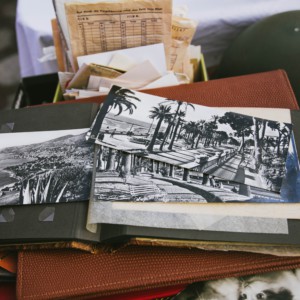‘What Work Is’: Class, Labour, and the Privilege of Poetry
“There's no money in poetry, but there's no poetry in money, either.”
We stand in the rain in a long line
waiting at Ford Highland Park. For work.
You know what work is—if you’re
old enough to read this you know what
work is, although you may not do it.
Forget you.
– Philip Levine, ‘What Work Is’
How do poets make money? To what extent do the pains, joys, and absurdities of working life feature in contemporary verse and poetry ‘circles’? And – with more than half of the British population identifying as working class – how might we harness ‘work’ as a theme to represent class experiences?
T.S. Eliot Prize-winner, Joelle Taylor, said ‘we cannot talk about poetry without first talking about class’; in this 10-week asynchronous course, you are invited to explore this notion, along with a presumption that we cannot talk about class without talking about work.
Through fortnightly reading and prompts, we will consider the origins and trajectories of English language ‘working class poetry’ from the Romantic and Victorian periods (John Clare, Mary Collier), to the American Proletarian scene (Langston Hughes, Gwendolyn Brooks, Philip Levine), the revival of British working class poetry (Tony Harrison, John Cooper Clarke, Jean Gittins) and the elevation of contemporary working class voices (Caleb Femi, Julia Webb).
In our own writing, we will prise open the subject of paid and unpaid labour to reveal fertile and unexpected ground. We will pay closer attention to the unpoetic jobs we do, or have done, to sustain ourselves – examining the connections and cognitive dissonances present in our creative inner lives. You will have time between sessions to submit a poem for feedback from the tutor and your group. You are encouraged to share your views on fellow poets’ work, as this will enrich our dialogue and spark new ideas.
Our explorations will take place in a supportive environment, where poet and tutor Ruth Beddow invites candid interrogation of ‘what work is’, and a reclamation of the inclusive and accessible spirit of poetic form. So, if you’ve ever wondered how to write about your day job, side hustle, housework or working-class heritage – while striking a balance between realism, humour, introspection and awareness – then this is the course for you.
5 fortnightly sessions over 10 weeks, starting 29 September 2025. No live chats. Suitable for UK & International students.
Concessions & Accessibility
To apply for a concession rate, please send relevant documentation showing your eligibility for one of our concessions to [email protected]. Conditions of eligibility are detailed here. If you have any questions or wish to be added to the waiting list of a sold-out course, please email [email protected].
What to Expect
Please check the left hand side of this page for information on how this course works in practice, under the heading ‘Course Style‘. If you’re unsure as to what any of the terms there mean, or if this course is a good fit for you, please visit our What to Expect page which includes some further information on how our courses function.
Image credit: @kateryna-babaieva
About Ruth Beddow  View Profile
View Profile
Ruth Beddow is a poet, facilitator and civil servant based in London. She is the author of The Thought Sits with Me (Nine Pens, 2022) and editor of Slow Progress (Morocco Bound, 2024), an interactive, illustrated anthology of poetry produced at the workshops she has been running since 2022. Ruth’s writing regularly explores the intersection between place and identity, with hints of the surreal. Her focus as a tutor is on making the poetry community more open and accessible, particularly to those juggling creative pursuits with work in all its forms. In recent years, Ruth has been shortlisted for the New Poet’s, Plough, Prole and Teignmouth prizes, and featured in publications such as Wild Court, Write Out Loud, Victorina Press, The Passionfruit Review and Ink, Sweat and Tears.
"Really happy to have found the Poetry School and that so many of the courses are offered online. Thank you!"
 Care Poetics
Care Poetics Learning from the Female Poets: Influence & Inspiration
Learning from the Female Poets: Influence & Inspiration Talking Poetry: Using Interview Transcripts in Poetic Practice
Talking Poetry: Using Interview Transcripts in Poetic Practice